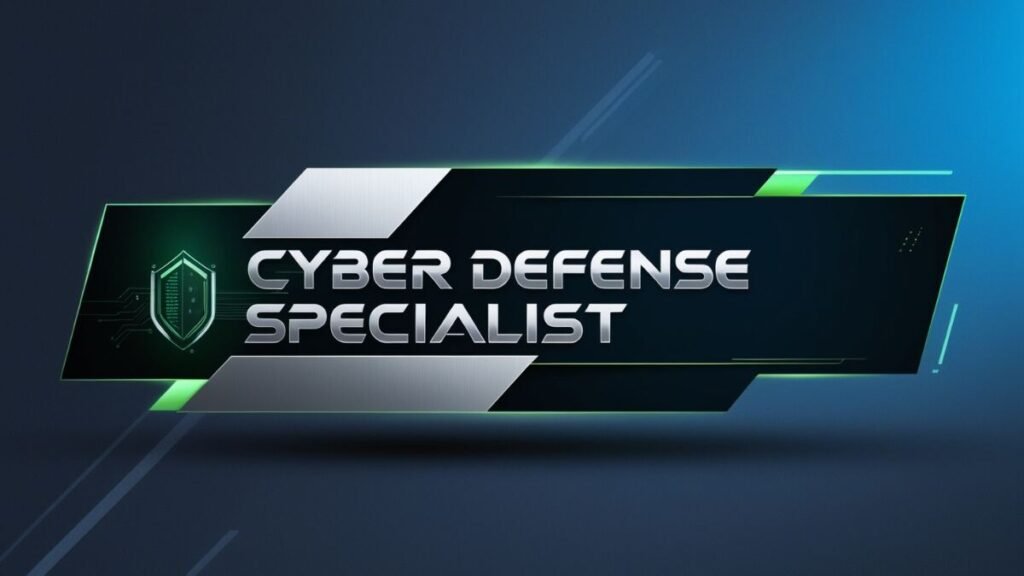Cyber Security Professional: A Comprehensive Guide Growth
Cyber Security Professional

Cyber security professional such as experts have become gatekeepers of our virtual arenas to protect sensitive data and ensure privacy as well as to safeguard critical infrastructures. As the landscape evolves digitally, so will the importance of these unsung heroes who work behind the scenes. This report will examine the role of a cyber security professional, the specializations within this field, and what it takes to succeed in this career.
What is a Cyber Security Professional?
A cyber security professional is, therefore, a trained individual protecting computer systems, networks, or data from such known digital attacks. Cyber security encompasses several important tasks, including threat detection and risk management, as well as the implementation of policies to maintain security. Such experts prove unreplaceable in the public and private sectors. In this day and age of the ever-increasing connectedness of the world, their skills are in extreme demand.
Important Cyber Security Roles
Let’s take a closer look at some of the functions within cyber security: Information Security Expert Cyber Security Professional.
An information security expert ensures the protection of the data of an organization from unauthorized access. They design and implement security policies to safeguard sensitive information against breaches and also maintain compliance with laws and regulations. Data privacy concerns are becoming increasingly widespread, and the role of an information security expert has become more important than ever.
Cyber Defense Specialist

These professionals monitor the network’s traffic and analyze it for any out-of-the-box activities that may hint at an incoming attack. They also develop methods to combat these attacks, which makes their work vital in safeguarding against new-age cyber threats such as ransomware and malware.
IT Security Analyst
This is the first line of defense for an organization’s digital assets. IT security analysts must monitor and respond to suspicious activities to prevent detection and neutralize potential threats. These professionals collaborate with other departments to implement security measures as well as establish a routine for conducting security assessments and are important players in the prevention of data breaches.
Network Security Engineer
This includes designing, implementing, and maintaining security protocols that prevent unauthorized access to a network. Firewalls, intrusion detection systems, and VPNs are commonly configured. As networks become increasingly complicated, this role is important for the seamless operation of an organization’s IT infrastructure.
Cyber Threat Analyst: Cyber Security Professional
Cyber threat analysts identify, assess, and respond to potential cyber threats. Their task will be to use intelligence data and forensic tools to predict possible future threats and vulnerabilities. This role helps keep ahead of cyber criminals, prepare for attacks, and stop or prevent attacks before they can happen.
Skills Cyber Security Professionals Require
To perform in the realm of cyber security, a professional in this domain must have a set of skill sets:
Technical Skill
A working knowledge of network infrastructure, firewalls, and security protocols would be helpful.
Analytical Skills
“The best cyber security professionals understand how the bad guys the weaknesses of a system and the potential vulnerabilities. They think like hackers.”
Good communication skills-ability to explain complex security issues to non-technical staff when implementing companywide security measures are all essential parts of the job.
Education/Certification
While a baccalaureate degree in computer science or information technology is an entry point for many, industry certifications often serve to enhance credentials for cybersecurity professionals.
Certified Information Systems Security Professional (CISSP)
This is perhaps one of the most widely recognized certifications available for certified security professionals.
Certified Ethical Hacker
Focuses on the tools and techniques leveraged by hackers: helping professionals think like cybercriminals and then protect systems accordingly.
Certified Information Security Manager
Best suited for professionals who are interested in moving to security management and leadership positions.
Cyber Security Professional Career Path
The typical career path of a cyber security professional starts with the position of security analyst or systems administrator. The more experience and certifications, the better the chance to work up to becoming security engineers, cyber defense specialists, or even information security managers. Provided one continues to advance, they can reach leadership positions such as CISO, where an organization’s entire security strategy will be under their supervision.
Challenges Cyber Security Professionals Encounters Daily
Cybersecurity professionals are usually faced with various challenges daily. The nature of cyber threats keeps evolving, introducing novel vulnerabilities and attack vectors. It is imperative to be knowledgeable and adapt to this proclivity for continuous learning. Moreover, the job entails high-pressure work with heavy pressure to prevent potentially catastrophic breaches for many professionals, which predisposes them to burnout.
The Increasing Requirement for Cyber Security Experts
Cybersecurity professionals are now in huge demand as businesses and individuals increasingly rely on digital platforms. From safeguarding personal data to national security, cyber security experts are the need of the hour for nearly every sector. Cyber attacks and data breaches that have occurred at the hands of powerful hackers against multinational corporations have only emphasized the need to have stronger cyber defenses.
The Future of Cyber Security Jobs

Here’s a promising future for cyber security in terms of job growth, at least. Traditional roles might, however, face shifts in new waves brought about by AI and machine learning. Detection of anomalies with automation of responses to threats is becoming a ground upon which the companies will employ systems infused with AI, so perhaps specialist roles in the activity of cyber security shall flourish.
Conclusion
Cyber security professionals form the unsung heroes of the digital world, where the data, systems, and networks, that are most important for our communication and digital life, are kept secure. The need for such cyber security experts will continue to increase with more sophisticated cyber threats. Whether it is an information security expert, a network security engineer, or a cyber threat analyst, every career is challenging yet offers so much more.
FAQs
What is the most important skill for a cybersecurity professional?
Analytical thinking is one of the most critical skills as it helps in identifying and mitigating threats effectively.
How may one begin a career in cyber security?
Earn a degree in computer science or IT and obtain certifications such as CISSP or CEH for specialization.
Most importantly, are there certification requirements for a cyber security expert?
Although not a requirement, certifications significantly boost the credibility and job opportunities in the professional field.
How is artificial intelligence influencing cybersecurity?
Cybersecurity is changing with AI, transforming threat detection and responses and thus easy management of very large security operations.





